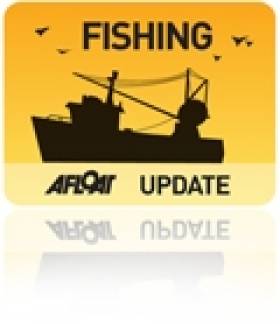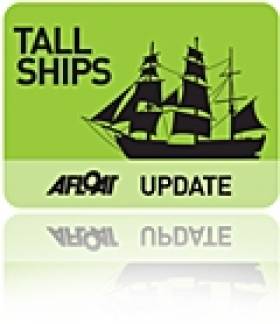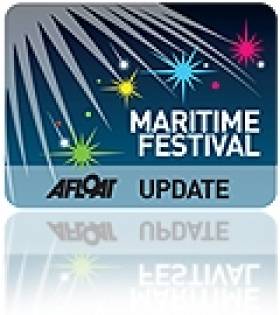Displaying items by tag: Portaferry
New Owners for 'Iconic' Hotel on Strangford Lough
#WATERFRONT PROPERTY - A 14-bedroom hotel overlooking Strangford Lough has been purchased by the owners of the five-star Merchant Hotel in Belfast.
Caterer and Hotelkeeper reports that the Portaferry Hotel will undergo a £100,000 (€116,700) refurbishment under its new ownership by the Beannchor Group, which is expected to help create 10 new jobs.
Bill Wolsey of the Beannchor Group said he was excited about the prospects for the "iconic" 18-century landmark.
"The restaurant has one of the finest food offerings in the area and I am confident it will be quickly established as a firm favourite with food lovers in the Ards Peninsula and further afield," he said.
Fishing Vessel Skipper Pleads Guilty
On 3rd January 2011 the UK registered fishing vessel 'Karen' was returning from a day's fishing in the Irish Sea when it grounded on the rocks at the North entrance to the port of Ardglass.
The vessel asked for urgent assistance from the Coastguard and the lifeboat from Portaferry was requested to launch to their aid. Because the weather was fair they were able to bring the crew ashore to Ardglass and to put pumps aboard the stricken vessel. The boat was later re-floated as the tide rose, however it sustained serious damage to the bow and keel.
At the Magistrate's Court in Downpatrick on 7th November 2011, skipper Simon Wills pleaded guilty of failing to properly navigate his vessel and to employing crew who were not qualified and did not meet the requirements of the fishing vessel safety training regulations
Mr Wills was fined a total of £600 and ordered to pay £1,250 to the RNLI.
On summing up the Magistrate Brian Archer said,
"It was fortunate that no one was injured."
Captain Bill Bennett, Area Operations Manager (Survey and Inspection) Belfast, for the MCA stated that
"This was a serious breach of the fishing vessel safety training regulations and once again reminds all fishermen of the need to ensure everyone onboard is properly qualified and to safely navigate his vessel and to maintain a lookout at all times. All breaches of the Maritime Regulations are taken seriously by the Maritime and Coastguard Agency."
Antigua On All-Island Visit
Antigua was originally a fishing boat built in 1957 at Thorne, Yorkshire but her appearance is completely different today. Gone are the fish as the vessel spent four years undergoing reconstruction for the purposes of accommodating paying-passengers. The work was completed in 1997 and this has included the provision of sixteen double cabins in luxurious surroundings.
Individual booking cruises can be made on the brigantine and her fleet-mates which are owned by the Tall Ships Company which take passengers on destinations not just in European waters but also to the Arctic.
The company also operate another brigantine the Artemis, the barque Artemis, the schooner Mare Frisium and the clipper Elizabeth. For further information about the company click here.
Strangford Celebrates Maritime Festival
Plus there's family friendly entertainment for everyone: have-a-go canoeing, boat tours including Sea Safaris and Underwater Wonders LIVE, a seaweed squelch, moth mornings, literary and archeology trails, art exhibitions, fabulous local food, music on the promenade to name but a few and, of course, lots of rich natural and built heritage to explore.
Visit www.strangfordlough.org for a detailed programme of festival events. Some events are free and others require ticket purchase. Tickets can be booked at local Tourist Information Centres; Portaferry - Tel: 028 4272 9882; Ards - Tel: 028 91826846; Downpatrick - Tel: 028 44612233. Also Strangford Lough and Lecale Partnership, Portaferry, (Mon to Fri only). T. 028 427 29005.
The Celebrate Strangford Lough Festival will present the Lough's amazing heritage through activities and events involving many of the people who work and live here. It is organised by the Strangford Lough and Lecale Partnership and funded by the Heritage Lottery Fund, Down District Council and Ards Borough Council, with support from the Northern Ireland Environment Agency and the National Trust.
Portaferry RNLI Rescues Four from Fishing Vessel
The Portaferry RNLI lifeboat was involved in the rescue of four men from a fishing boat that ran aground off the coast last Monday evening, the Belfast Telegraph reports.
The lifeboat along with the Portaferry and Newcastle Coastguard and and Irish Coast Guard helicopter from Dublin responded to a distress call from a 60ft trawler that ran into difficulties close to Ardglass harbour.
All four men on board were rescued and treated by paramedics on scene, and the vessel was later refloated.
Related Safety posts
RNLI Lifeboats in Ireland
Safety News
Rescue News from RNLI Lifeboats in Ireland
Coast Guard News from Ireland
Water Safety News from Ireland
Marine Casualty Investigation Board News
Marine Warnings




























































